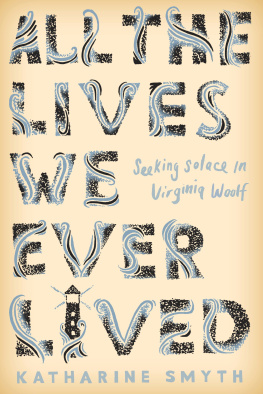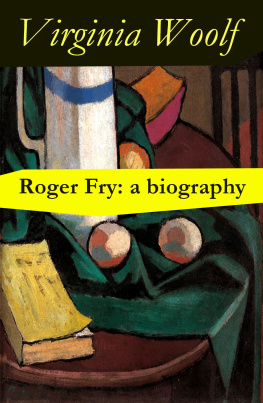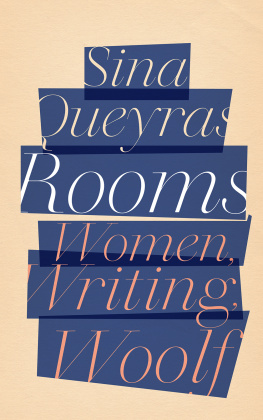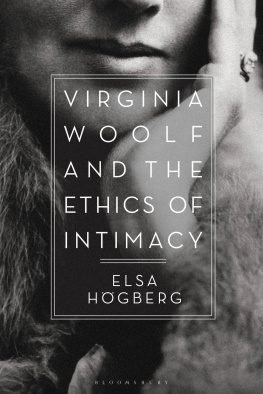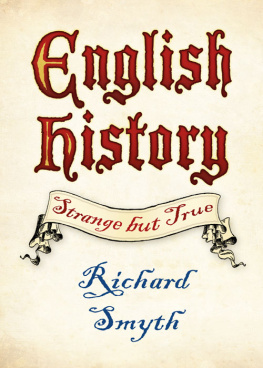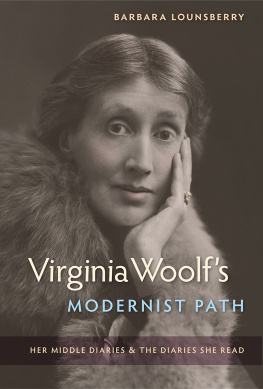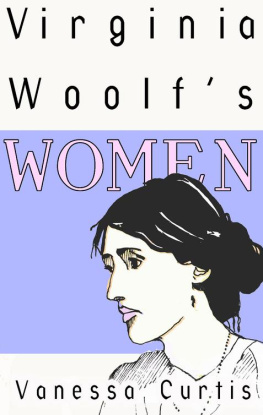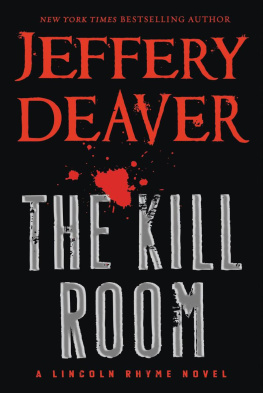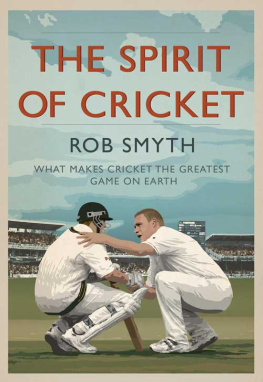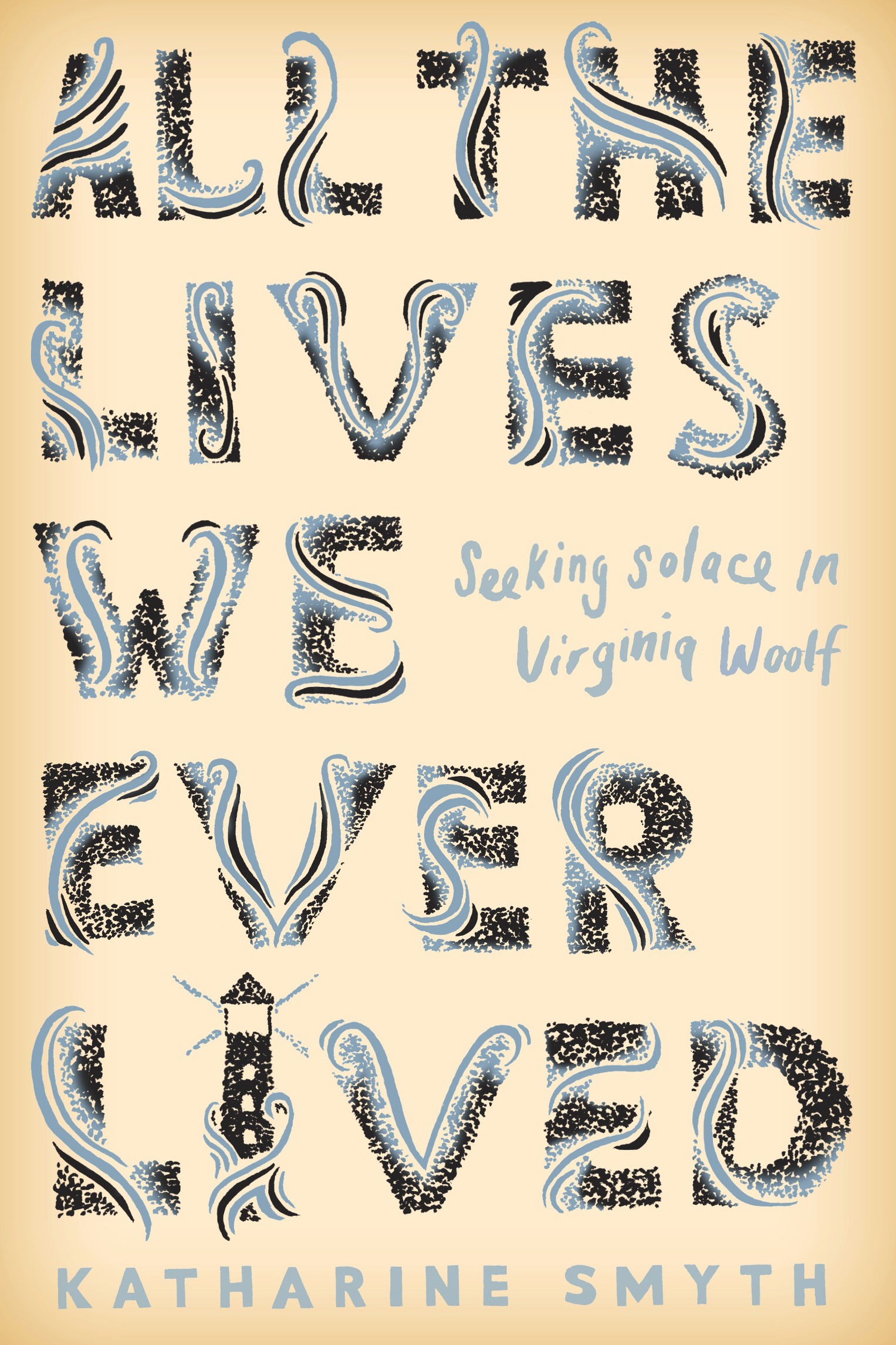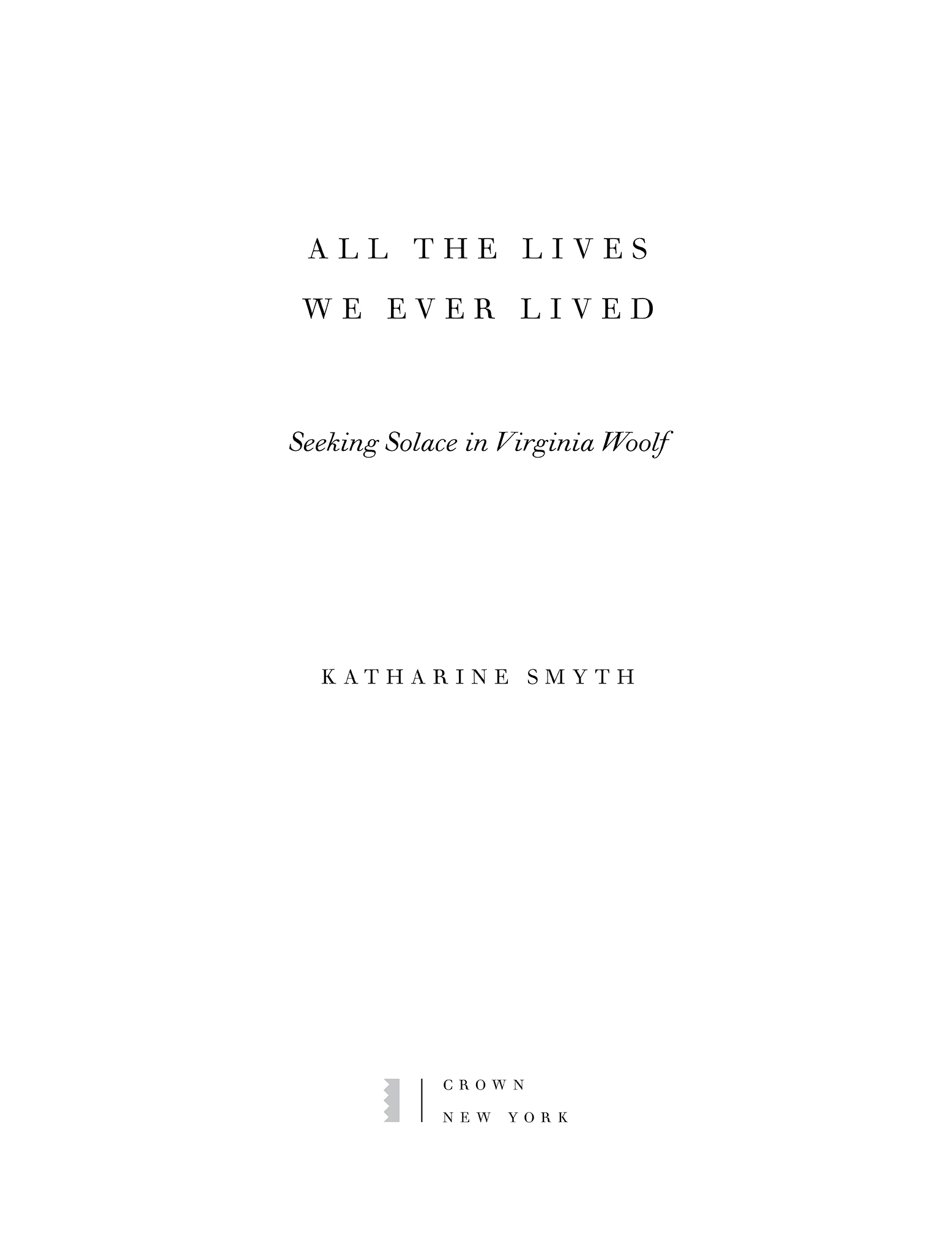All rights reserved.
Published in the United States by Crown, an imprint of the Crown Publishing Group, a division of Penguin Random House LLC, New York.
CROWN and the Crown colophon are registered trademarks of Penguin Random House LLC.
Library of Congress Cataloging-in-Publication Data is available upon request.
It was strange how clearly she saw her, stepping with her usual quickness across fields among whose folds, purplish and soft, among whose flowers, hyacinths or lilies, she vanished.
PREFACE
Perhaps there is one book for every life.
One book with the power to reflect and illuminate that life; one book that will forever inform how we navigate the little strip of time we are given, while also helping us to clarify and catch hold of its most vital moments. For me, that book is To the Lighthouse, Virginia Woolfs novel about her parents, Julia and Leslie Stephen, who died when Virginia was thirteen and twenty-two, respectively. First published in 1927, it tells the story of the Ramsays, a family of ten who, along with an assorted group of friends, spends the summer on a remote island in the Hebrides. Tells the story of the Ramsays? I should rephrase: To the Lighthouse tells the story of everything.
I first read it as a junior in college, a literature student studying abroad at Oxford University. It was Christmas 2001, and my parents and I were visiting my fathers family on the south coast of England. After dinner, I joined my father and Robert, his older brother, in the sitting room. My father was listening to Handel and reading, and I was listening to my uncle talk about books. An eccentric, shuffling bachelor, he asked about Oxford and told idealized stories of his own time there; he scoffed at the novels I had been assigned and wrote me a syllabus of his own. As he left the room to find me a copy of his magnum opus, a history of one of Englands ancient woodlands, my father looked up from his sailing magazine and smiled. Hes sweet, he said.
He makes me nervous, I said. I think he thinks Im an idiot.
No, my father said. He thinks youre twenty.
Robert returned. I expressed admiration for Forest People and Places and then we each settled down into our respective worldsmine, the sitting room in which Mrs. Ramsay joins her husband late at night, a room much like the one in which our minds now roamed, and feels herself swinging from branch to branch, flower to flower, climbing, climbing, as she murmurs the words of poetry her husband had recited at dinner. My father and uncle drank brandy; my father smoked cigarettes and my uncle cigars. The logs on the fireplace cracked and blackened. Earlier my father had latched the wooden shutters and drawn the heavy velvet drapes; now, in the softened space he had created, the music seemed to strengthen and the stillness of the night to grow. So too on that far-flung Scottish island, where Mr. Ramsay sets down his book and looks up at his wife, who, still climbing, nevertheless begins to sense the pressure of his mind.
Did I already suspect the revelatory role these words would play for me? I dont think so: To the Lighthouse is a work that rewardsthat demandsreading and rereading; it was not until at least my second time through it that I had the impression of actually swimming round beneath its surface. But already, as I curled up with that book by the fire, it was beginning to reciprocate and even alter my experience, while also giving me a vocabulary by which to fathom that experience, so that I would always understand that Christmas night, a night on which I relished my fathers vices rather than cursing them, as a version of that final sitting room scene, and its tacit, book-tinged intimacy a version of Mrs. Ramsays final triumph.
A FEW WEEKS later, my parents called me from Boston. After eight years of failed cancer treatments, they said, my fathers oncologists had decided to remove his bladder altogether. My father assured me he was pleased. He hadnt been feeling well for some time, he said, and I remembered that over the holidays I had occasionally turned to see him grimacing. There was one more thing, my mother said. The surgery would mean that he could no longer drink. No longer drink! How marvelous that would be, and yet, how impossible to imagine.
At the time of the twelve-hour operation, I was visiting Amsterdam with a group of college friends. My mother called almost hourly with updates. Dim sum, a trip to the Van Gogh museum, and a walk through the red-light district were all interrupted with medical reports: Well, theyve removed the bladder completely, and theyre about to build a new one from the intestine. We were watching an impeccably choreographed and oddly sterile orgy scene at a midnight live sex show when my mother called one last time to say that the surgery was over and couldnt have gone better. For weeks I had been having nightmares, but with this news I immediately lost a bit of interest. Of course it had been a success, I thought.
It was this same winter that Virginia Woolf, escaping the prim ranks of Women Writers to which my high school teachers had consigned her, became instead the nexus of my reading life. My tutor, Shane, was a sharp, wry Beckett scholar who had taught me James Joyce earlier in the year; his comprehension of British modernism was so effortless and unsentimental that my own hard work and enthusiasm embarrassed us both. Miffed by Woolfs snarky dismissal of Joycea queasy undergraduate scratching his pimples, she famously called himShane never missed an opportunity to ridicule her snobbishness and eccentricity. On the day we were to discuss Orlando, he brought in a particularly unflattering photograph of Vita Sackville-West, her friend and paramour. How anyone could write a love letter to that is beyond me, he chortled. I enjoyed his irreverence; certainly I needed reminding that one mustnt take literature so seriously all the time. But as I read my way through every one of Woolfs novels, my own admiration for her only intensified. It wasnt long before I began to answer Shanes questions with uncharacteristic certainty, and though I couldnt always locate the corresponding textual evidence, I never failedas I had constantly during our Joyce tutorialto produce the exact response for which he had been angling. He soon grew frustrated by this instinctive, unscholarly version of literary criticism, but when he told me, not at all complimentarily, that I seemed to have an intuitive sense of Woolf, I was overjoyed.
One week after my fathers operationI was foraging for Mrs. Dalloway criticism in the depths of the Bodleian Library, a pleasure that, as Woolf acerbically recalls in A Room of Ones Own, had been denied her as a woman some seventy years earliermy mother called again. My father was fine, she said, but he had reacted badly when they tried to switch him from a feeding tube to solid food. When she called the following day, it was to say that he was actually suffering from delirium tremens, or alcohol withdrawal. The previous evening, he had started to complain of a terrible smell, then to frantically wave away the hundreds of tiny gnats he saw swarming the hospital room. (Neither my mother nor the doctors smelled or saw anything unusual.) Within hours he had become incoherent, hostile, and violent. He shouted at doctors, nurses, and my mother; he tried to tear out his many tubes; he had several near-fatal seizures; and he was moved to intensive care and restrained. My mother related all this only after the worst was over.

